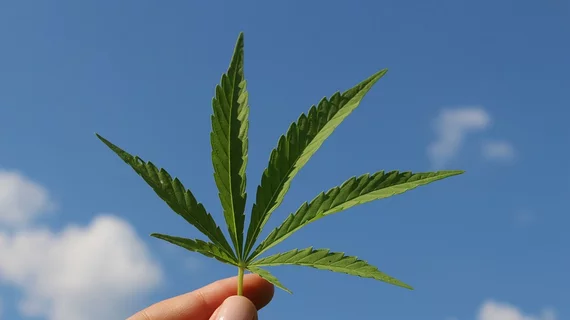Soy compound could protect heart from cannabis-related damage
An antioxidant compound found in soybeans might protect the heart from cannabis-related CV damage, according to work presented at the American Heart Association’s Basic Cardiovascular Sciences 2019 Scientific Sessions.
While some studies have linked recreational or medical marijuana use to a heightened risk of heart attacks, strokes and other CVD risk factors, an already sparse body of research is struggling to keep up with the rapid legalization of the drug across the U.S. When Canada legalized recreational cannabis nationwide last October, local expert Taylor Lougheed, MD, MSc, identified both stigma and merit in the practice of using cannabis.
“We can say that there seems to be a trend, or there seems to be a possible relationship between the use of cannabis and this particular outcome, but we can’t necessarily prove causation at the moment,” he told Cardiovascular Business at the time. “We’re just getting to correlation, which could be a challenge.”
The group of scientists who presented at the AHA poster sessions this week based their work on studies that have suggested a link between smoking marijuana and CV side effects like changes in heart rate and blood pressure. Lead author Tzu-Tan “Thomas” Wei, PhD, an assistant professor of pharmacology at National Taiwan University in Taipei City, said in a release the goal of his team was to “investigate the mechanisms of marijuana-induced damage and discover new drugs to prevent those side effects.”
For their study, Wei and his colleagues exposed endothelial cells—like those that line our blood vessels—derived from healthy stem cells to THC. The exposure induced inflammation and oxidative stress in the cells, both mechanisms that are implicated in the development of CVD.
The researchers found that treatment with JW-1, an antioxidant compound that’s found in soybeans, eliminated the effects of THC exposure on the endothelial cells by blocking access to cannabinoid receptors (CB1, CB2) in the blood. They also used wire myography to examine the response of mouse arteries to THC, similarly finding that JW-1 blocked the compound’s negative effects.
“Previously, a drug that blocked CB1 was approved in Europe for the treatment of obesity, but it had to be withdrawn because of severe psychiatric effects,” Wei said. “In contrast, as an antioxidant, JW-1 may have neuroprotective effects. Discovering a new way to protect blood vessels without psychiatric side effects would be clinically important with the rapid growth of cannabis use worldwide.”

